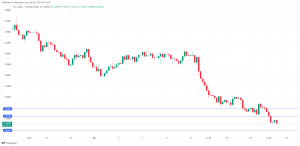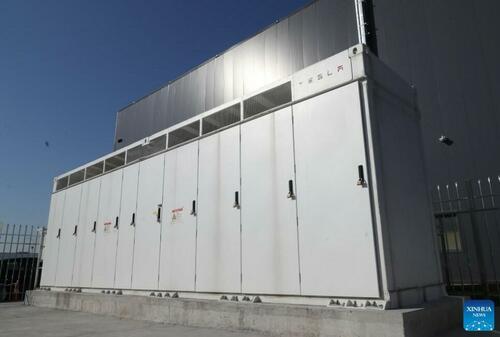Energy & Critical Metals
Housing Market Crash Alert: What a Default Would Mean for Home Prices
Source: shutterstock.com/Lerbank-bbk22
As the debt ceiling crisis continues to trudge on, more economists are beginning to consider the repercussions if…

 Source: shutterstock.com/Lerbank-bbk22
Source: shutterstock.com/Lerbank-bbk22
As the debt ceiling crisis continues to trudge on, more economists are beginning to consider the repercussions if legislators fail to raise the debt limit in time. At the top of that list is housing, perhaps the single-most economically sensitive major industry. Will the housing market crash if the U.S. defaults?
Well, according to Zillow economists, a U.S. debt default would likely push housing even deeper into its current recessive state. Indeed, should the government default, credit rating agencies would likely immediately downgrade the country’s credit rating. This would balloon 30-year fixed mortgage rates well past 8% and send the cost of homes up a projected 22%. It would prove devastating to the already-slumped real estate industry.
Zillow Senior Economist Jeff Tucker notes:
“While we don’t expect a debt default to occur, if it did, it would have unprecedented effects on the financial system […] This would reduce lending and credit availability throughout the financial system. What that means for the housing market is that the cost of borrowing would rise dramatically and sales would be dropping.”
According to Zillow analysts, homes sold in the 18 months after July would drop by 700,000, “almost 12% of the 6 million sales currently expected during that span.”
Housing Market Crash Fears Swirl as Default Elevates Chance of Recession
One of the scariest aspects of the looming default is its precedent — or rather, lack thereof. The U.S. has never defaulted on its debt in its history.
Of course, this isn’t the first time we’ve cut it close. In fact, Congress has raised the debt limit more than 70 times since 1960, often at the last minute. That said, the current polarized state of Congress and the pro-default stance of one former President have some concerned over unforeseen outcomes, should Congress prove unable to reach an agreement.
While projections put home values falling upwards of 5% in the case of a default, it’s difficult to say with any certainty just how bad things could get. Military and government employees could stop being paid, benefits like Social Security and Medicare may freeze and entire governmental agencies could completely shut down. The country would be at risk of spiraling into a wider recession, taking housing and many other industries with it.
“The severity of not paying our bills is the single greatest threat to middle-class Americans, retirees and small business,” said David Stevens, former CEO of the Mortgage Bankers Association, “It cannot be overstated how risky this would be.”
Current estimates have unemployment rising as high as 8% should the U.S. enter default. This alone would wreak havoc on the housing market, turning long-whispered fears of a impending housing market crash into reality.
According to U.S. Treasury Secretary Janet Yellen, the country may only have until June 1 to sort out the debt ceiling dilemma. Until then, industries and economists everywhere are holding their breath.
On the date of publication, Shrey Dua did not hold (either directly or indirectly) any positions in the securities mentioned in this article. The opinions expressed in this article are those of the writer, subject to the InvestorPlace.com Publishing Guidelines.
With degrees in economics and journalism, Shrey Dua leverages his ample experience in media and reporting to contribute well-informed articles covering everything from financial regulation and the electric vehicle industry to the housing market and monetary policy. Shrey’s articles have featured in the likes of Morning Brew, Real Clear Markets, the Downline Podcast, and more.
More From InvestorPlace
- Buy This $5 Stock BEFORE This Apple Project Goes Live
- The Best $1 Investment You Can Make Today
- Wall Street Titan: Here’s My #1 Stock for 2023
The post Housing Market Crash Alert: What a Default Would Mean for Home Prices appeared first on InvestorPlace.

Uranium Exploration Company Announces Additional Staking in the Athabasca Basin
Source: Streetwise Reports 12/22/2023
Skyharbour Resources Ltd. announced an update from its Canada-based Falcon Project along with additional…
Tesla Launches New Mega Factory Project In Shanghai, Designed To Manufacture 10,000 Megapacks Per Year
Tesla Launches New Mega Factory Project In Shanghai, Designed To Manufacture 10,000 Megapacks Per Year
Tesla has launched a new mega factory…
Giving thanks and taking stock after “a remarkable year”
An end-of-year thank you to our readers, industry colleagues and advertisers before Electric Autonomy breaks from publishing until Jan. 2
The post Giving…


















